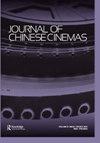The Disaster Artist (2017): How we appreciate bad films
IF 0.4
3区 艺术学
0 FILM, RADIO, TELEVISION
引用次数: 0
Abstract
Abstract The following record is an excerpt of the Deep Focus Roundtable Discussion originally published on April 3, 2018, which was part of the second round of the Chinese-language film criticism competition organized by Deep Focus. Since 2016, Deep Focus has held a Chinese-language film criticism competition that targets a young generation of cinephiles, comprising film professionals, college students, or white-collar workers in a variety of fields. The competition usually consists of three rounds. At the preliminary stage, the first-round reviewers rank submissions and select a certain number of good reviews according to their shared criteria. In the second round, the authors of those selected film reviews are randomly allocated into groups. Each group is asked to discuss an assigned film as a roundtable. Each member of the reviewing committee leading such roundtables picks one film that merits in-depth discussions from multiple perspectives, and they serve as both the facilitator and the examiner of the roundtable contest. One winner within each group is selected for the final round, during which the finalists write criticism on a single film. The roundtable “How We Appreciate Bad Films” exemplifies the importance of the roundtable format for the Deep Focus collective. Responding to the debates and controversy over The Disaster Artist (2017) among Chinese fans and cinephiles, the four participants of this competitive roundtable engage the category of “bad film” (lanpian, a Chinese term referring to box-office flops and/or aesthetically bad films) in a global context. Respectively hailing from Taiwan, Hong Kong, and mainland China, young cinephiles confront each other in an intellectual battle around one film.《灾难艺术家》(2017):我们如何欣赏烂片
以下录音节选自2018年4月3日《深聚焦圆桌讨论》,是深聚焦组织的第二轮华语影评大赛的一部分。自2016年以来,深聚焦举办了一场针对年轻一代影迷的中文影评大赛,包括电影专业人士、大学生或各个领域的白领。比赛通常有三轮。在初步阶段,第一轮审稿人对提交的作品进行排名,并根据他们的共同标准选择一定数量的优秀审稿。在第二轮中,被选中的影评作者被随机分组。每个小组被要求在圆桌会议上讨论指定的电影。主持这种圆桌会议的评审委员会的每个成员都会从多个角度挑选一部值得深入讨论的电影,他们既是圆桌会议竞赛的推动者,也是审稿人。每组选出一名优胜者进入最后一轮,入围者就一部电影写评论。圆桌会议“我们如何欣赏烂片”体现了圆桌会议形式对深度聚焦集体的重要性。针对中国影迷和影迷对《灾难艺术家》(2017)的争论和争议,本次圆桌竞赛的四位参与者在全球背景下探讨了“烂片”(lanpian,一个中国术语,指票房失败和/或美学差的电影)的类别。分别来自台湾、香港和中国大陆的年轻影迷们围绕一部电影展开了一场思想之战。
本文章由计算机程序翻译,如有差异,请以英文原文为准。
求助全文
约1分钟内获得全文
求助全文

 求助内容:
求助内容: 应助结果提醒方式:
应助结果提醒方式:


